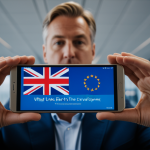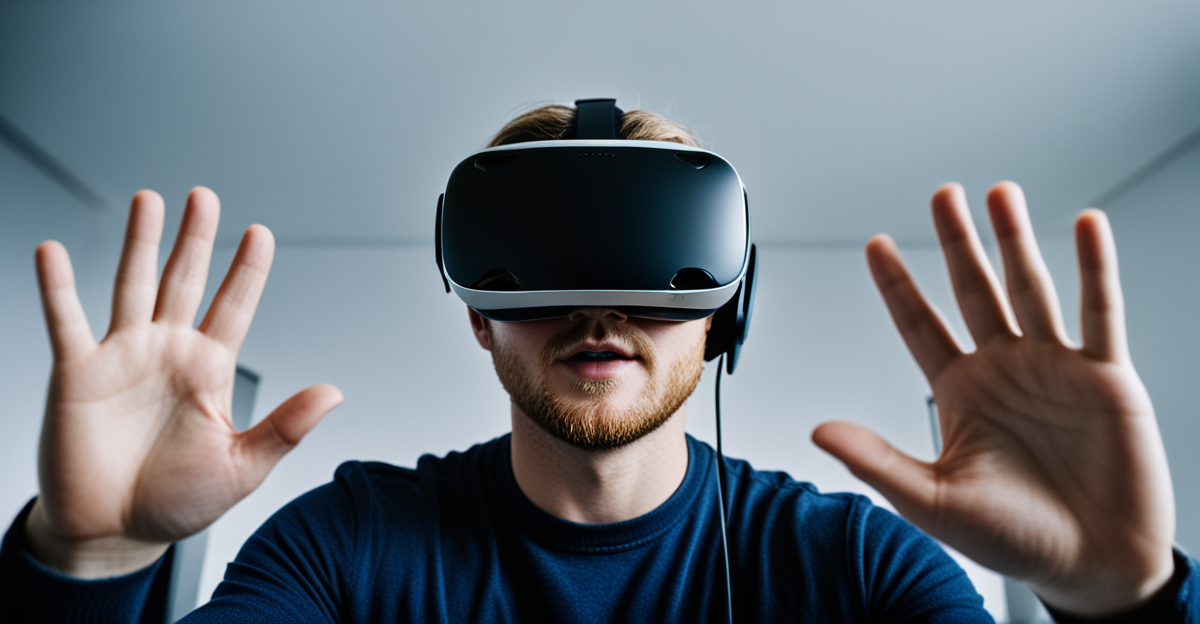UK Leadership in Virtual Reality Innovations
The UK VR innovations sector has shown remarkable progress, positioning Britain at the forefront of VR technology advancements globally. British tech pioneers have delivered key breakthroughs in immersive displays, haptic feedback systems, and adaptive VR software that enhance user experience significantly. For instance, several UK-based research groups have optimized low-latency rendering techniques, crucial for seamless virtual environments and reducing motion sickness.
Examples of British tech in VR making a global impact include advanced simulation platforms used in medical training and virtual heritage reconstruction projects that preserve cultural sites digitally. These innovations highlight the UK’s strong emphasis on combining creativity with cutting-edge technology.
In parallel : What role does the UK play in the evolution of fintech innovations?
Statistically, the UK contributes a substantial share of patents related to VR hardware and software development, with an upward trend in investment and partnerships between academia and industry. This synergy accelerates not only technological breakthroughs but also their commercialization, reinforcing the UK’s reputation as a hub for VR technology advancements.
The sustained focus on innovation in the UK is key to maintaining leadership in virtual reality, driving solutions that balance technical precision with broad applicability across sectors. Such leadership, rooted in research excellence and entrepreneurship, continues to propel the British VR market forward.
Also to read : How Might Advancements in UK Technology Influence Daily Life?
Major UK Companies and Startups in Virtual Reality
The UK VR companies landscape is vibrant, featuring both established firms and dynamic VR startups UK that drive innovation. Leading enterprises like Improbable and Ultraleap leverage British expertise to develop scalable virtual worlds and advanced hand-tracking technology, respectively. These companies exemplify how British tech in VR is shaping global virtual experiences.
Collaboration between commercial players and academia is a defining characteristic of the UK’s virtual reality industry. Partnerships between UK VR companies and universities foster solutions that blend academic research with market demands, accelerating VR technology advancements. For example, startups often spin out from university labs, benefiting from shared facilities and expert mentorship.
Several case studies illustrate successful commercialization of UK VR innovations. Industrial training platforms developed by startups reduce costs and increase safety by simulating hazardous environments. Meanwhile, entertainment-focused companies create immersive narratives that captivate audiences worldwide. These applications underscore how VR startups UK contribute significantly to positioning Britain as a leader in the virtual reality industry.
Overall, the synergy among UK VR companies, startups, and research institutions underpins the sector’s growth, making the UK a fertile ground for cutting-edge virtual reality solutions with global reach.
Role of UK Universities and Research Institutions
UK VR research is pivotal to sustaining the nation’s leadership in virtual reality. Academic VR projects UK-wide actively explore foundational technologies like spatial computing and real-time interaction models. These efforts often translate into innovative prototypes and specialized software, reinforcing the technological base for broader VR technology advancements.
Institutional collaborations are a hallmark of UK VR research. Universities partner with UK VR companies and startups, sharing expertise and resources. This exchange expedites product development cycles and opens pathways to commercialisation, thus amplifying the impact of academic innovations. For example, several universities have established dedicated VR labs where academic innovation directly informs industry solutions, exemplifying the integration of research and development.
Funding and government support for academic VR development are substantial. Initiatives providing grants and infrastructure investments empower universities to lead cutting-edge research. This backing ensures continuity in breakthroughs essential for UK VR innovations, nurturing talent and fostering an environment where academia and industry jointly push the boundaries of virtual reality technology.
In summary, VR innovation universities in the UK play an indispensable role by conducting advanced research, facilitating collaborations, and harnessing funding to create scalable VR solutions that maintain the UK’s competitive edge in the global VR landscape.
Government Initiatives and Investment in VR
The UK government VR investment strategy plays a crucial role in accelerating VR technology advancements. Through targeted VR funding UK schemes, initiatives back both nascent startups and established UK VR companies to develop innovative virtual reality solutions. These investments often emphasize sustainability and broad applicability, ensuring long-term sector growth.
Government-backed innovation hubs and research centres provide essential infrastructure and collaboration spaces, bridging gaps between academia and industry. For example, grant programs support academic VR projects UK-wide, enabling rapid prototyping and commercialization. This synergy helps maintain Britain’s competitive advantage in the virtual technology landscape.
Public sector adoption further exemplifies the government’s commitment. VR applications in healthcare training, virtual site inspections, and digital education reflect proactive use of funded technologies. These uses demonstrate how strategic government policies facilitate tangible benefits across diverse sectors.
In sum, the UK’s digital strategy fosters a vibrant environment where investment fuels innovation. By prioritizing UK government VR investment and encouraging public-private partnerships, the country strengthens its position as a global leader driving transformative VR advancements.
Real-World Applications and Impact of UK VR Advancements
UK VR applications have transformed multiple sectors, notably healthcare, education, and entertainment. In healthcare, British tech in VR enables immersive surgical training simulations that improve practitioner skills while reducing patient risk. These applications demonstrate how UK VR innovations deliver tangible benefits by enhancing precision and safety.
In education, virtual reality platforms developed in the UK facilitate interactive learning experiences. Students can explore historical sites virtually or engage in complex scientific visualizations. Such immersive educational tools highlight the impact of VR technology advancements on engagement and knowledge retention.
Entertainment VR case studies Britain-wide include narrative-driven experiences and interactive gaming. Many of these stem from startups and established companies pushing boundaries in storytelling and user interaction, showcasing the UK’s leadership in content innovation.
Industry adoption of UK VR solutions extends beyond startups to established businesses and public services. Companies use virtual environments for employee training, reducing costs and improving outcomes. Public sectors implement VR for virtual site inspections and accessibility improvements, reflecting widespread confidence in VR technologies.
Overall, these examples underline the deep integration of UK VR applications in daily and professional life, proving the practical and economic value of the country’s virtual reality advancements on a global scale.
UK Leadership in Virtual Reality Innovations
The UK VR innovations sector is distinguished by groundbreaking research and development that drive global progress in virtual reality. British researchers have made pivotal breakthroughs in areas such as adaptive haptic feedback, spatial audio, and real-time environment rendering, enhancing immersion and user comfort. These advancements reduce latency and improve interaction fidelity, core challenges addressed by British tech in VR.
Quantitatively, the UK holds a significant proportion of VR-related patents, signaling a strong intellectual property presence. Data shows a steady increase in government and private sector investment fueling VR technology advancements, enabling accelerated development cycles and faster commercial rollout.
Prominent UK-originated VR technologies have found usage globally, including sophisticated medical simulators that improve surgical training accuracy and virtual environments that replicate cultural heritage sites for education and tourism. These examples illustrate the UK’s ability to blend technical sophistication with practical applications.
Together, these successes underscore the UK’s role as a leader in VR technology advancements, reflecting a balanced ecosystem where innovation, investment, and commercialization converge to maintain British prominence in the evolving virtual reality landscape.





